A Complete Unknown
 for language.
for language.
Reviewed by: Jim O'Neill
CONTRIBUTOR
| Moral Rating: | Offensive to Very Offensive |
| Moviemaking Quality: |
|
| Primary Audience: | Adults |
| Genre: | Biography Music Drama |
| Length: | 2 hr. 21 min. |
| Year of Release: | 2024 |
| USA Release: |
December 25, 2024 DVD: April 1, 2025 |
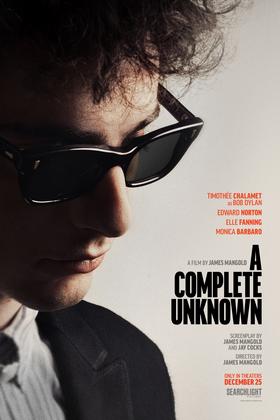

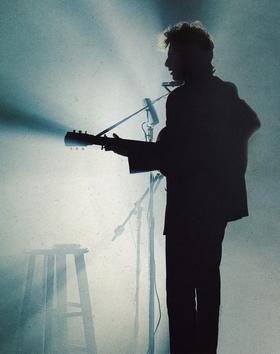
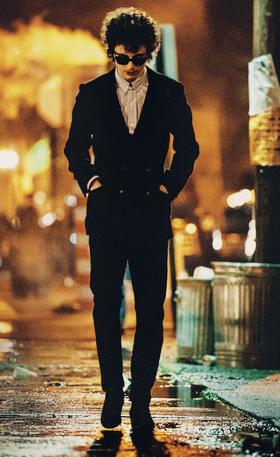
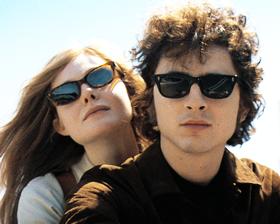
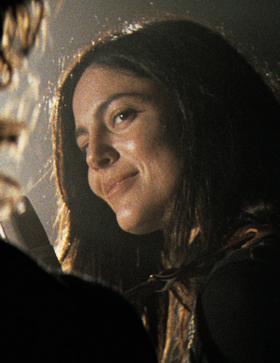
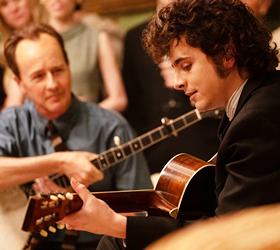
Setting: 1961 New York City
Unknown 19-year-old Bob Dylan arrives with his guitar and forges strategic relationships
Brought major changes in popular music
Numerous popular musicians have acknowledged his influence on their music.
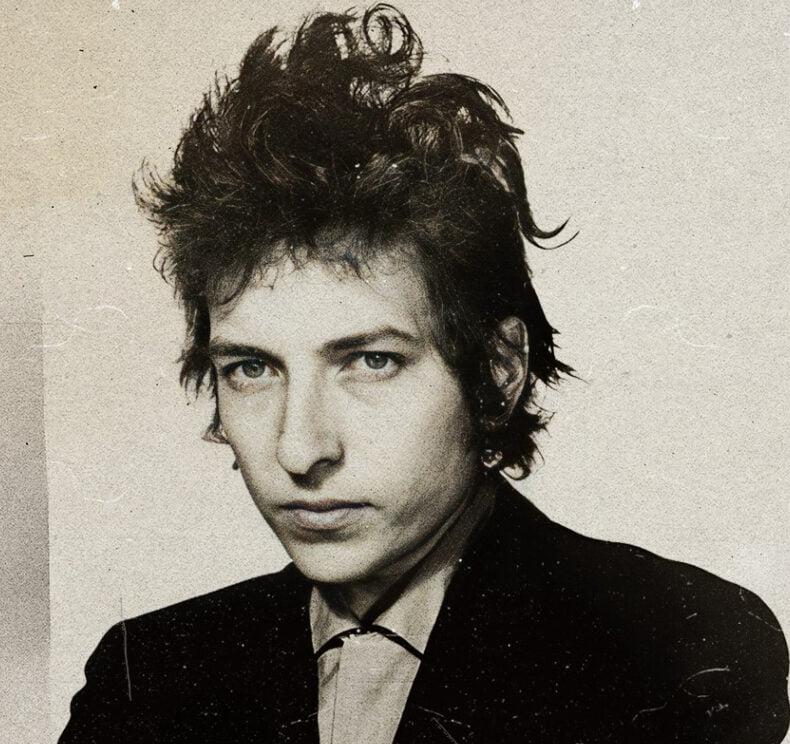
Time magazine includes Dylan among the 100 Most Important People of the 20th Century.
Bob Dylan was born Robert Allen Zimmerman (his Hebrew name is Shabtai Zisl ben Avraham) in Minnesota. His paternal grandparents emigrated from Odessa in the Russian Empire. His maternal grandparents, Florence and Ben Stone, were Lithuanian Jews. Dylan’s parents were part of a small, close-knit Jewish community in Duluth.
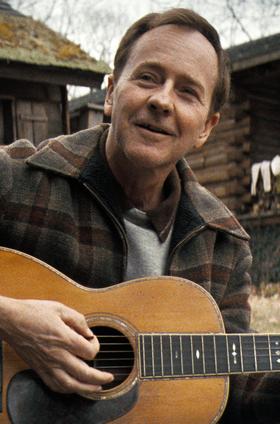
Folk singers
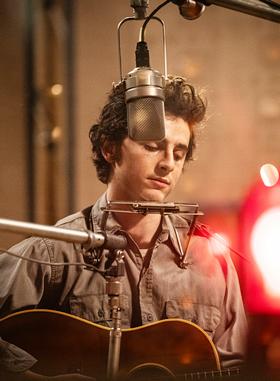
Dylan’s lyrics included political protest, social and philosophical elements, and later (for a time) Christian themes.
In 1978 Dylan converted to “Christianity” and took a discipleship course run by the neocharismatic Association of Vineyard Churches. In 1984 he publicly distanced himself from being described as “born-again.” “I’ve never said I’m ‘born again.’ That's just a media term.”
What is spiritual regeneration (being born-again)? Answer
In late 2022, Dylan told an interviewer, “I read the scriptures a lot, meditate and pray, light candles in church. I believe in damnation and salvation as well as predestination. The Five Books of Moses, Pauline Epistles, Invocation of the Saints [asking Saints to intercede with God], all of it.”
What is a true Biblical Christian?
MUSIC in the Bible
| Featuring |
Timothée Chalamet … Bob Dylan Monica Barbaro … Joan Baez Scoot McNairy … Woody Guthrie Elle Fanning … Sylvie Russo Boyd Holbrook … Johnny Cash Edward Norton … Pete Seeger Joe Tippett … Dave Van Ronk Dan Fogler … Albert Grossman Charlie Tahan … Al Kooper Norbert Leo Butz … Alan Lomax Michael Chernus … Theodore Bikel See all » |
| Director |
James Mangold |
| Producer |
Timothée Chalamet James Mangold See all » |
| Distributor |
“And his brother’s name was Jubal, he was the father of all such as handle the harp and organ.” —Genesis 4:21
“I touched the garment, but the hem was torn, in Scarlet Town where I was born.” —Bob Dylan, “Scarlet Town” (2012)
“Oh God said to Abraham, ‘Kill me a son.’
Abe says, ‘Man, you must be puttin’ me on.’
God say, ‘No.’ Abe say, ‘What?’
God say, ‘you can do what you want, Abe, but the next time you see me comin’ you better run.’
Well Abe says, ‘Where do you want this killin’ done?’
God says ‘Out on Highway 61.’” —Bob Dylan, “Highway 61” (1965)
After the album “The Freewheeling Bob Dylan” was released in 1963, popular songwriting changed forever. When exposed to songs from that collection, musicians would turn to writing lyrics with a decidedly Dylanesque character. The tunes stayed hummable, but the words became poetic and topical. A song might have remained conventional musically, but its words became relevant, stirring, and often reactionary. “Doo-wah-diddy” and “yea, yea, yea” would never pass for lyrics again.
Director James Mangold, who co-wrote the screenplay to “A Complete Unknown,” adapted from a 2015 book by Elijah Wald called Dylan Goes Electric, with Jay Cocks, graciously spares his audience the customary “road to the top” path that most biopics drag us through. Dylan’s rise to fame is a relatively short one; he makes connections early on by visiting Woody Guthrie (Scoot McNairy) in the hospital where he was dying from Lou Gehrig’s disease and introducing himself to Pete Seeger (Edward Norton) within days of getting off the bus from Minnesota to New York City.
Nonetheless, Dylan’s is hardly an “All About Eve” steppingstone story. His is a right-place-at-the-right-time “rolling stone” story. His singular talent more than mere ambition takes him to heights that no traditional folk singer ever reached. And he is not shy or modest about his fame: “They ask me where the songs come from, but what they are really asking me is why the songs didn’t come to them.”
Most of the movie’s early scenes take place in Dylan’s West 4th Street apartment and in Greenwich Village folk venues such as the Gaslight. The film beautifully recreates the Village in the early 1960s when the folk music scene had already come into its own but was about to be transformed into something monumental with Dylan’s emergence.
I enjoyed watching the artists perform inside those poorly lit basements remembering with fondness the days when performers stepped on a stage by themselves and sang a song without back-up dancers, light shows or pyrotechnics. Today we do not listen to concerts as much as we get bombarded with extravaganzas. An intimate performance on a bare stage is a relic of the past, and the film fondly re-creates that atmosphere.
Timothée Chalamet plays Dylan, and he is smart to do so in a casual, laid-back style, not trying to overdue the musician’s low grind of a voice and “on the spectrum” human interaction style. Instead, he seems to have fun with Dylan’s dismissive treatment of his fellow musicians and fans, and especially his girlfriends.
Some of the lines reveal flashes of self-awareness, but Chalamet spares the rod and gives those a light touch. When he says, “I put myself in another place, but I’m a stranger there,” he plays down the pathos enough to make the line humorous instead of turgid.
In his relationships with women, he is careless in the way artists tend to be, but without being misogynistic. He treats his girlfriend, Suze Rotolo (played captivatingly by Elle Fanning) as both muse and extremity, a part of himself that he takes the least care of but cannot survive without.
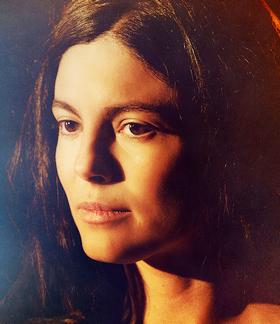
He is particularly cavalier with his frequent stage partner and sometimes lover, Joan Baez (a penetrating performance by Monica Barbaro) whose voice he calls “pretty, too pretty” and tells her that the songs she writes are “like oil paintings in a dentist’s office.”
I wondered if Chalamet, who also co-produced the film, toned down his character to bring it more in line with that of Edward Norton who plays Pete Seeger. Norton is low-keyed, reserved, and at times, almost invisible. His soothing, lullaby-like Seeger voice is perfect—the cadence and intonation always being spot-on. Norton’s elder folk-singer represents a world that is stepping aside to make room for a new one, and he does so with reserve and grace instead of puffery and bombast. He tells Dylan in a compassionate way: “We bring teaspoons of love and justice. You, Bobby, bring a shovel.” His understated performance is a gem, and it grounds the movie.
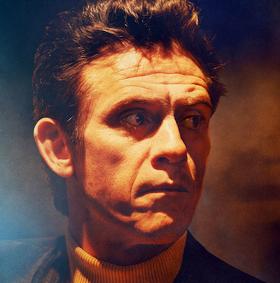
Another great but too-short turn is Boyd Holbrook’s portrayal of Johnny Cash. In just a few short scenes, Holbrook brings Cash to sparkling life, dispensing with the sullenness that made Joaquin Phoenix’s imitation in Mangold’s 2005 film, “Walk the Line” such a bore. The current movie has fun putting Cash’s devil-may-care high jinks on display but sadly leaves out Cash’s Christian sensibility, something that characterized much of his music:
“O lord, help me to walk another mile; just one more mile; I’m tired of walking all alone.”
Mangold also leaves out Dylan’s apparent religious conversion and Christian-themed music, something I should forgive the director for. That Dylan phase did not come into full bloom until after the 1960s.
The movie starts to run out of steam after its subject reaches the height of his fame. We are shown background images of by now well-trodden 1960s milestones such as the civil rights struggle, the Cuban missile crisis, the Kennedy assassination, and the Vietnam War protests, all of it coming across as little more than stock footage.
And worse, we are made to wallow in unnecessary sentimental melodrama by re-created scenes from the 1942 Bette Davis classic, “Now, Voyager.” There’s even the obligatory “mental breakdown on stage” episode that has become a constant, and more and more unwatchable, aspect of every one of these performer biopics. Mangold made a mess of that worn cliché in “Walk the Line,” and he repeats the mistake in his latest effort.
Fortunately, things pick up when Dylan arrives at the 1965 Newport Folk festival, his acoustic guitar replaced by an electric one and backed up by a five piece rock and roll band. That electric rendition of his latest song catalog caused the biggest to-do since the Ballet Russes staged Stravinsky’s ballet, “The Rite of Spring” in Paris in 1913. I knew I was in for a treat when in rehearsals Al Cooper (Charlie Tahan), Dylan’s keyboardist at the time, played the opening organ notes to “Like A Rolling Stone.” Those chords would become an overture for what would be a fortissimo performance. And a dangerous one.
When Dylan defiantly steps onto the stage and opens his Newport set with “Maggie’s Farm”…
“I try my best to be just like I am, but everybody wants you to be just like them; they say, ‘sing while you slave,’ and I just get bored, ah, I ain’t gonna work on Maggie’s Farm no more.”
…the audience goes crazy, rebelling against what they saw as a sacrilege to acoustic folk dogma. Members of the audience throw things at the stage in much the way a better dressed crowd threw things at the stage in Paris in 1913. At Newport, Dylan caused a scandal in the folk world but opened a door to a new realm which blended folk music with, well, everything else. There would no longer be three-chord-guitar strumming and “Michael, row your boat ashore” harmonies.
“A Complete Unknown” captures an historical cultural change; unfortunately, that change did not make all things new. Only one transformation, one acceptance, one surrender can fulfill that promise. The Mangold-Chalamet effort shies away from that ultimate truth and although the film is a commendable effort, it will someday stand not alongside Dylan’s poetry, but with the other vestiges of the folk music period such as Peet Seeger’s song, “Where Have All the Flowers Gone?”
- Profane language: Very Heavy— G*d d*mn (4), plus 13 others (Chr*st, J*sus, J*sus Chr*st, Oh G*d)
- Vulgar/Crude language: Very Heavy— F-Words (2 dozen), related hand gesure, and a couple dozen other vulgar words; Derogatory comments and terms
- Drugs/Alcohol: Heavy— Heavy smoking throughout; Marijuana use implied; Alcohol (liquor, beer); Very drunk Johnny Cash character
- Violence: Moderate— Punches; Objects thrown at people; Concert fight; Protest scenes; Arguments; Car crash resulting in dents
- Sex: Moderate— No sex scenes, but 2 scenes in bed after fornication; some sexual references throughout; a few heterosexual kisses
- Nudity: Cleavage; Shirtless man (repeatedly); Man in bathtub
- Wokeism: Minor
- Occult: None
See list of Relevant Issues—questions-and-answers.


PLEASE share your observations and insights to be posted here.
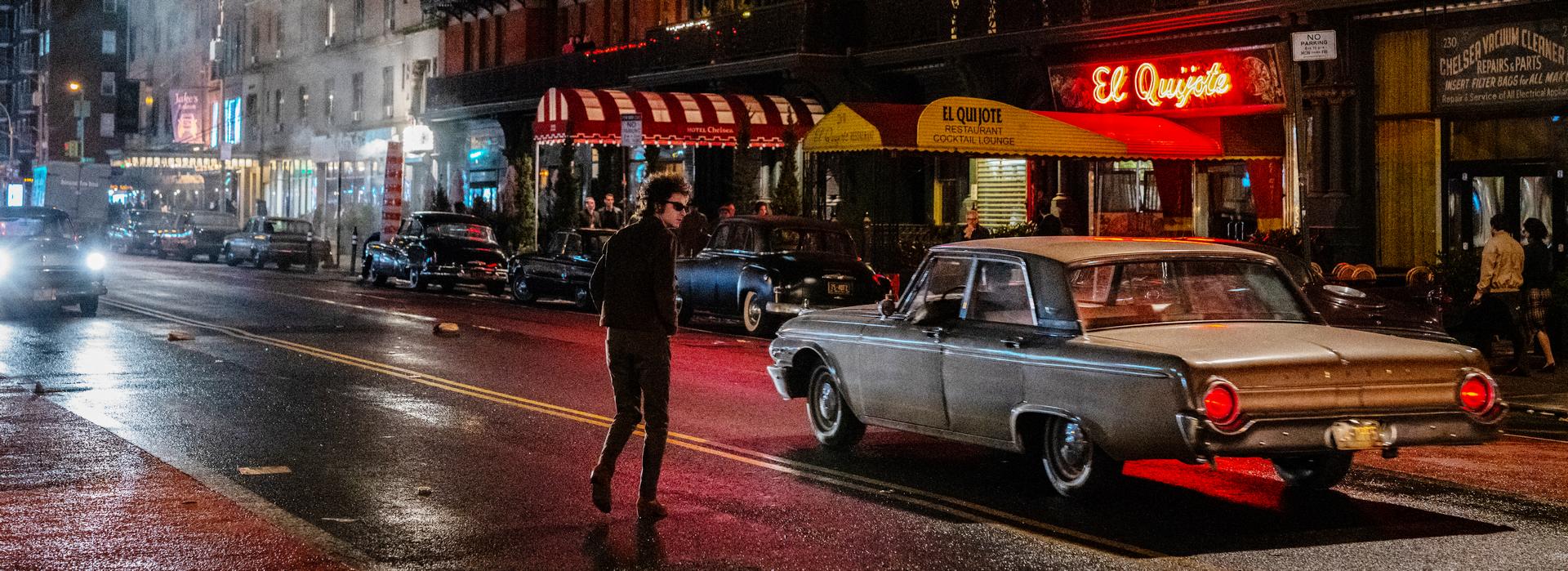

Nothing too morally offensive about this film, overall great aesthetic, the fun of this movie, and the time period it took place in 1961-65 definitely reminded me of the 1996 episode of “The Simpsons” “Bart After Dark” where in one scene various of the show’s characters are singing a song about a burlesque house, the song “We Put the Spring in Springfield” in one part of this song, Abe Simpson and his best friend Jasper both say while dancing together “Without it we’d have had no fun since March of 1961.”See all »
My Ratings: Moral rating: Average / Moviemaking quality: 4½